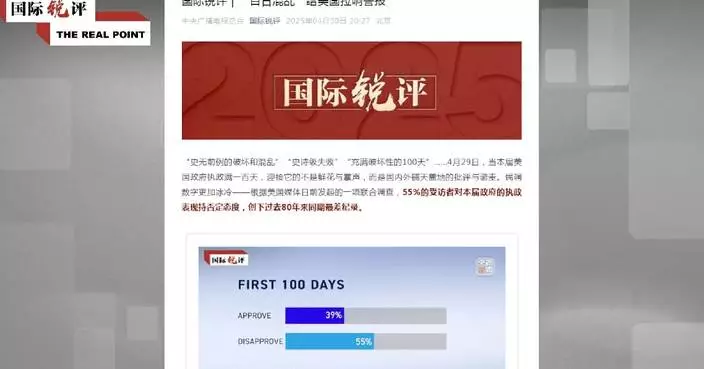The United States' tariff policies are set to shock Poland's automobile industry, one of the pillars of the country's economy, according to a Polish expert, who warned the measures will also impact auto production in the U.S. and drive up prices for American consumers.
Wojciech Drzewiecki, President of Poland's IBRM Samar, a data analysis firm specialized in the auto sector, give his assessment of the impact of the tariffs introduced by the Trump administration during an interview with the China Media Group (CMG) on Wednesday.
U.S. President Donald Trump signed an executive order last week imposing a 10-percent "minimum baseline tariff" on all imports, which came one day before his 25-percent tariff on automotive imports took effect on April 3.
Drzewiecki said that as Poland exports a great amount of vehicles to the U.S. market along with other European trading partners, the sweeping tariffs are set to hit Polish auto sector badly.
"It's very important for Polish manufacturers because we provide a lot of components to our partners in Germany, the Slovak Republic and the Czech Republic and they are providing cars directly or exporting cars directly to U.S. market. So, if there will be any collapse of the [export] market, that will for sure influence our manufacturers and our exports will collapse, too," he said. With Poland's auto industry accounting for eight percent of the country's total GDP, according to government estimates, there is concern over the impact of the tariffs.
Drzewiecki explained that since the U.S. only produces about half of the auto parts it needs, the tariffs will impose higher costs on both American auto manufacturers and consumers.
"Only 40 or up to 50 percent of spare parts or components was produced in the U.S., the rest is coming from other countries, also from Europe. So, if there will be influence on the market, we will be also influenced on the local production and the prices for the customers," he said.
While Drzewiecki believes the true intention behind the U.S. tariffs is to address the country's huge trade deficit, he said the effort is not likely to help realize this goal because of the lack of competitiveness of U.S. products on the global market.
"Tariffs are always bad, so, that's not the best solution. If you want to sell more to other countries, you have to be competitive. And the problem with American products was that the product was not competitive, therefore other customers in other countries did not buy those products," he said.

US tariffs set to backfire despite shocks to Poland's auto sector: industry insider



















































